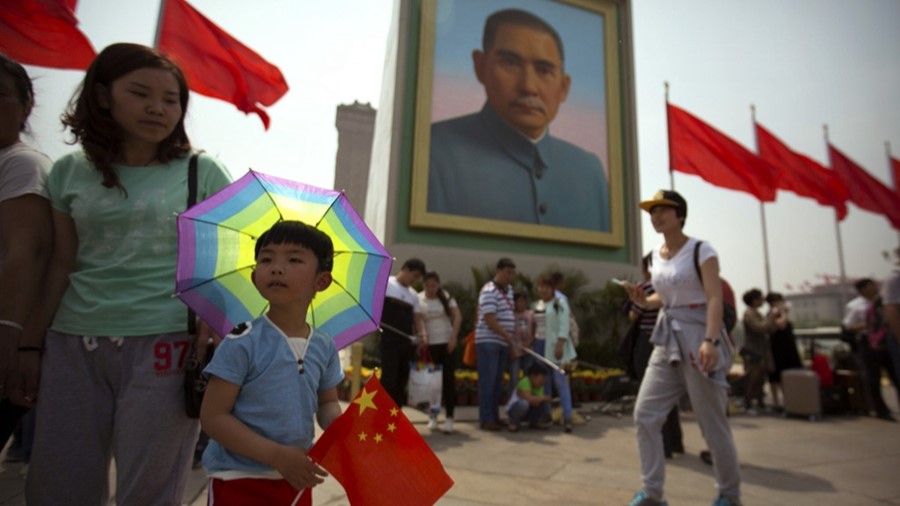For finance professionals like Xiao Chen*, the dream of quick wealth and status has come crashing down. Working in Shanghai’s prestigious private equity sector, Xiao Chen was once on track to achieve the financial success that many young professionals in China aspired to. In his first year on the job, he earned nearly 750,000 yuan ($106,200), and his future looked bright. But today, his salary has been cut in half, and the bonuses that once made up a large part of his income have vanished. What was once a promising career has now turned into a source of frustration and uncertainty.
Xiao Chen’s experience is not unique. Across China’s finance industry, professionals are grappling with the effects of a government crackdown on personal wealth and corporate excess. Under President Xi Jinping, the country has shifted away from the wealth-centric policies of the past and toward a new focus on “common prosperity.” This shift has had profound implications for the finance sector, which has long been a symbol of success in China’s rapidly growing economy.
For decades, China’s finance industry thrived as the country’s economy boomed. Ambitious professionals flocked to the sector, drawn by the promise of high salaries, performance-based bonuses, and the opportunity to climb the corporate ladder quickly. But in recent years, the government’s efforts to address income inequality have put the industry under intense scrutiny. Finance professionals, once seen as the elite of Chinese society, are now viewed with suspicion, and the industry has been labeled a target in the government’s broader push to curb excessive wealth.
Xiao Chen, who once enjoyed a luxurious lifestyle filled with international travel and high-end fashion, has had to make significant adjustments. Instead of vacationing in Europe, he now opts for cheaper destinations in Southeast Asia, and shopping for luxury brands like Burberry and Louis Vuitton is no longer an option. While these changes may seem minor compared to the legal troubles faced by some of his colleagues, they reflect a broader trend of declining morale and shrinking opportunities within the industry.
In recent years, several high-ranking finance officials and banking executives have been detained as part of the government’s anti-corruption campaign. Among them is the former chairman of the Bank of China, whose arrest sent shockwaves through the industry. Meanwhile, pay cuts across banking and investment firms have become a common topic of discussion on Chinese social media, where finance workers openly express their dissatisfaction with the current state of the industry.
The frustration within the finance sector reached a tipping point in July 2022, when a viral social media post on Xiaohongshu sparked widespread outrage. A user boasted about her husband’s 82,500-yuan monthly salary at China International Capital Corporation, drawing attention to the stark wage disparity between finance professionals and average workers. In Shanghai, where the average monthly salary is just over 12,000 yuan, the massive gap in earnings became a flashpoint for debate, reigniting discussions about income inequality in the country.
This debate coincided with President Xi’s broader push for “common prosperity,” which aims to narrow the wealth gap and promote fairer income distribution. In August 2022, China’s Ministry of Finance introduced new regulations requiring companies to “optimize internal income distribution” and redesign their salary structures. These policies have forced financial institutions to make difficult decisions, often resulting in pay cuts for their employees.
Alex*, a manager at a state-controlled bank in Beijing, explains that while the government’s directives are not always explicitly stated, the message is clear: salaries in the finance sector are now capped. “There’s no official document that outlines salary limits,” he says, “but everyone knows they exist.” This lack of transparency has created a sense of uncertainty within the industry, as financial institutions struggle to comply with shifting regulations.
For Xiao Chen, the impact of these changes has been immediate. With fewer companies launching initial public offerings (IPOs) and foreign investment in China on the decline, his workload has diminished significantly. Once responsible for managing high-profile projects, Xiao Chen now spends his days completing routine administrative tasks, a far cry from the exciting, fast-paced work he once enjoyed. “The team’s morale is low,” he says, noting that many of his colleagues are already thinking about their next moves. “People are talking about what they’ll do in three to five years.”
Despite the widespread frustration, there is little evidence that finance professionals are leaving the industry in large numbers. While some layoffs have occurred, job opportunities in China remain scarce, and even a lower-paying finance job is seen as better than no job at all. However, the dissatisfaction is clear, with one Xiaohongshu user likening the current job market to a game of musical chairs: “If you stand up, you might find your seat is gone.”
Xiao Chen also notes that finance professionals are no longer viewed favorably in Chinese society. “We’re not even wanted on blind dates anymore,” he says. “If someone finds out you work in finance, they’re not interested.”
As China’s economic policies continue to evolve, the future of the finance sector remains uncertain. For professionals like Xiao Chen, the once-promising industry has become a source of anxiety, and the path forward is far from clear.











